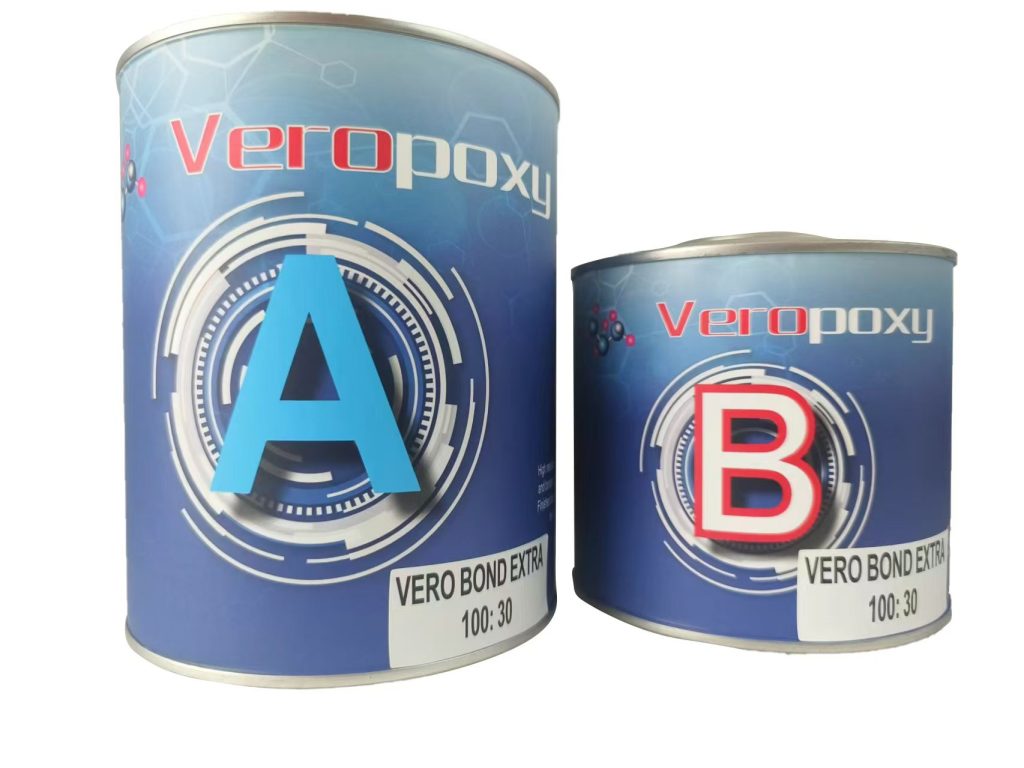Semi-precious stone slabs, prized for their unique colors and patterns, bring a distinct elegance to interiors, often used for tabletops, wall features, and countertops. Though they are beautiful, some of these stone slabs can be rather soft or brittle, which increases their susceptibility to chips, scratches, and even cracks with time. Often sprayed on the surface of the stone, epoxy resin increases its durability. This resin not only makes the slab stronger but also produces a smoother, more polished appearance, so enhancing the visual appeal of the stone slab. In what ways might epoxy resin affect the hardness of slabs of semi-precious stone? Let’s investigate the special chemistry under this process and how epoxy resin turns these stones into strong, long-lasting surfaces.

epoxy resins
How Epoxy Resin Works to Strengthen Stone Slabs
Epoxy resin is a versatile material that, once cured, forms a hard, plastic-like surface. Applied to semi-precious stone slabs, the resin fills any tiny cracks, pores, or flaws in the surface layer. By means of a bonded layer created from within, this penetration helps to strengthen the slab from within, so enhancing its resistance to outside pressures and impacts.
The hardening effect of epoxy is especially beneficial for semi-precious stone slabs that might be relatively soft or porous. Sometimes left untreated, stones including onyx, malachite, or labradorite can be fragile and easily damaged. The epoxy layer shields the surface of the slab and strengthens its structural integrity, so enabling its increased resistance to wear and tear.
Increased Hardness for Functional Durability
A primary reason for applying epoxy to stone slabs is to enhance their hardness, making them more suitable for high-use applications. For example, counters and tabletops are under constant stress from pressure from heavy objects as well as from inadvertent impacts. Without sacrificing their natural beauty, epoxy resin offers a degree of hardness that makes semi-precious stone slabs more suited for certain functional uses.
The hardened epoxy coating creates a protective layer over the stone, reducing its vulnerability to chipping or cracking. For example, heavy objects or small impacts could ruin an untreated slab of softer stone; but, with epoxy, damage is far less likely to show. Because it keeps little surface flaws from ruining the stone, this increased durability also helps to preserve the slab’s natural look.
Preventing Surface Damage and Wear
Another benefit of epoxy resin is its ability to guard the stone slab against surface damage. Particularly in high-traffic or highly used areas, semi-precious stone slabs can eventually show scratches, scuffs, or even minor cracks. Acting as a hard shell, the epoxy coating creates a barrier separating the stone from its surroundings, so preventing these types of damage.
For softer stone types, the epoxy layer not only protects against minor scratches but also provides added resistance against moisture and stains. Epoxy is non-porous, therefore it stops liquids from seeping into the stone, so preventing over time discolouration or staining. For slabs used in kitchens or bathrooms, where moisture exposure is regular, this is particularly important.
The Chemistry of Hardening and Bonding
The particular chemistry of epoxy resin produces its hardening action. Mixing resin and hardener causes a chemical reaction that results in a curing and solidification of the mixture. Strong molecular bonds created by this curing process cover the stone slab with a rigid, durable surface. The hardened epoxy can thus manage heavy loads or pressure without deforming since it also resists compression.
This bonding process not only makes the slab surface more resistant to physical damage but also creates a stable environment for the stone, minimizing its exposure to environmental elements like temperature fluctuations or humidity changes. The cured epoxy’s molecular bonds are made to resist these changes, so extending the stone’s condition and appearance over years.
Balancing Hardness with Flexibility
While epoxy resin adds significant hardness to the stone slab, it also maintains a level of flexibility. Sometimes pure hard materials become brittle, which would cause cracking should they be knocked over. The slight elasticity of Epoxy keeps this from occurring so the slab may resist small impacts without breaking. For semi-precious stone slabs used in functional areas, this harmony of hardness and flexibility is perfect since it helps them manage daily use without sacrificing their structural integrity.
This flexibility also helps the slab adapt to environmental changes, such as slight shifts or expansions due to temperature or humidity fluctuations. Epoxy resin absorbs these little motions and stays bonded to the stone, so preventing surface cracking or delamination.

Epoxy resin plays a crucial role in enhancing the hardness and durability of semi-precious stone slabs, making them more resilient for practical use in spaces like kitchens, bathrooms, and commercial environments. Strengthening the surface of the slab, the epoxy layer shields it from minor impacts, moisture, and scratches, so maintaining its natural beauty over time. Epoxy resin offers a perfect finish that lets semi-precious stone slabs be both functional and decorative objects because of its special mix of hardness and flexibility. Epoxy resin lets these naturally occurring beautiful stones shine in environments where durability is crucial by turning them into robust surfaces, so providing both long-lasting elegance and strength.
Post time: 11 月-08-2024

